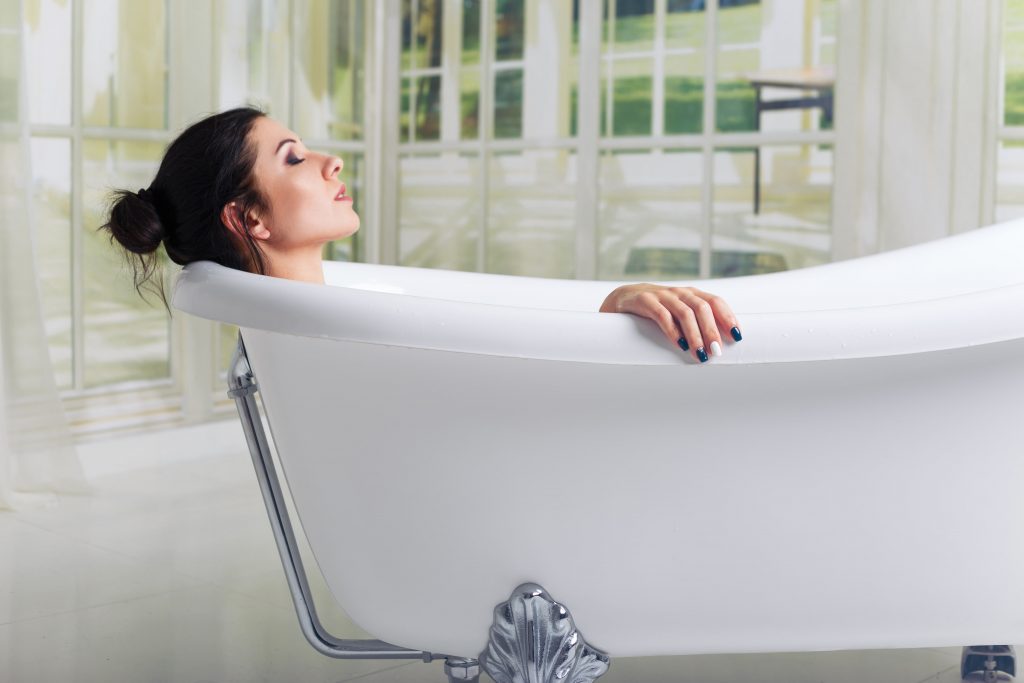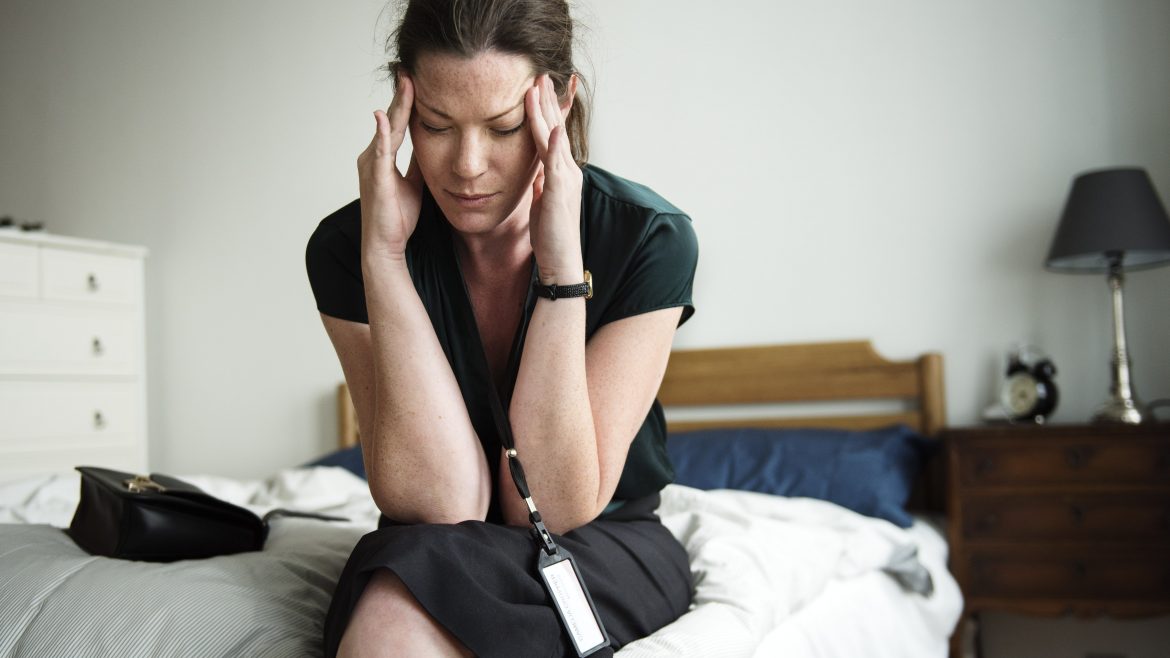Aromatherapy to the Rescue: Essential Oils for Stress
- Have you experienced stress at least once this week?
- Have you experienced stress multiple times this week?
- Have you experienced stress at least once today?
- Have you experience stress multiple times today?
I don’t know about you, but my answer is ‘Yes’ to all of these.
It seems like everyone is stressed nowadays.
According to Statistics Canada, 23% of people over the age of 15 and 30% of people between the ages of 35 to 54 report that most days are “quite a bit” or “extremely” stressful.
The World Health Organization has deemed stress a ‘World Wide Epidemic’.
It seems that in today’s world, stress is unavoidable.
What is stress, exactly?
According to Dr. Shiel Jr, “stress is a physical, mental, or emotional factor that causes bodily or mental tension. Stresses can be external (from the environment, psychological, or social situations) or internal (illness, or from a medical procedure).”[1]
How does stress affect us?
As you probably know, the occurrence of stress produces a certain response in the human body, sometimes described as the “fight or flight” response.
During the “fight or flight” response, our body releases adrenaline to help us get away from a source of danger (real or perceived) quickly or fight it.
When this occurs, receptors in our brain activate to increase heartbeat and respiration; increased blood flow and oxygen are directed to the vital centers of the body (brain and heart) as well as to muscles to enable activity.
When the danger is over, the body quickly returns to its original state; clammy hands and feet become warm and dry again, respiration and pulse slowly return to normal and digestion starts again[2].
This is known as acute stress: a short and intense episode of high energy.
Stress, in this sense, is not necessarily problematic. In fact, it can be quite helpful. It can save us in times of real danger, it can motivate us, it can give us the energy to do certain tasks or accomplish difficult challenges, and more[3].
However, stress can be problematic when it’s prolonged and repeated over a significant period; this is called chronic stress.
In chronic stress, the “high-activity” state generated by a stressful situation is never completely switched off. Over time, if stress continues, the person will not be able to overcome stress responses, and will eventually become exhausted through loss of energy[4]. This can lead to physical, mental, and emotional problems, and ultimately breakdown.
Chronic stress affects hormonal balance, digestion, immune function (i.e. we are more vulnerable to disease), it changes cognitive ability, increases sensitivity to pain[5]. Chronic stress can lead to depression (and associated effects like intense fatigue, exhaustion, sleeplessness, etc.) and is linked to problems such as heart disorders, stomach ulcers and cancer[6].
Did you know that chronic stress accounts for 80% of all healthcare problems in the United States[7]?
This is all to say that stress is a serious issue and, at the rate and quantity at which people experience it nowadays, it needs to be addressed.
This is where aromatherapy comes in.
How do essential oils help with stress?
Aromatherapy is a simple, safe, cost-effective method that can reduce both acute and chronic stress.
Inhalation of essential oils is one of the best ways to receive the stress-reducing effects of essential oils[8].
This is because our responses to stress are governed by the hypothalamus, which is part of the limbic system, and odor has a direct pathway to the limbic system[9].
Certain essential oils have proven relaxing properties.
Essential oils such as Lavender, Lavandin, Mandarin, Rose, Bergamot, and Frankincense have all shown their potential to reduce stress[10]. Sweet Orange (Citrus sinensis) has also been proven to be effective in reducing anxiety. Other anxiety-reducing oils include Neroli, Petitgrain, Atlas Cedarwood, Chamomile, Melissa and Valerian[11].
How do I use essential oils to reduce stress?
- By diffusion (i.e. through inhalation)
- In a warm bath. See here on how to use essential oils in a bath safely and effectively
- Through massage
- Etc.

Here is a list of Pranarom Essential Oils for consideration for stress:
- Aromavita 15 essential oil blend for relaxation
- Aromavita 95 essential oil blend for fatigue
- Aromanoctis Sleep Capsules for stress & better sleep
- Zen diffusion synergy
- Meditation diffusion synergy
- Neroli
- Atlas Cedarwood
- Bergamot
- True Lavender
- Mandarin
- Petitgrain
- Roman Chamomile
- Sweet Orange
- Yuzu
*Note: Please note that I am not presenting these essential oils as replacements for traditional medicine. I fully recognize that when dealing with stress, there are often serious illnesses, diseases and disorders that are connected to it, in which case the use of essential oils may not be entirely appropriate.
My point is that essential oils can be useful as complements to traditional methods of medicine, while serious cases of stress-related illness should always be presented first to a qualified medical professional.
Also, be sure to always read the product label before using any essential oil product to make sure the product is right for you.
[1] Shiel Jr., William C. “Medical Definition of Stress.” MedicineNet, www.medicinenet.com/script/main/art.asp?articlekey=20104.
[2] Buckle, Jane. Clinical Aromatherapy. 3rd ed., Churchill Livingstone, 2003.
[3] Price, Shirley, and Len Price. Aromatherapy for Health Professionals. 4th ed., Elsevier, 2012.
[4]Buckle, Jane. Clinical Aromatherapy. 3rd ed., Churchill Livingstone, 2003.
[5] Ibid.
[6] Price, Shirley, and Len Price. Aromatherapy for Health Professionals. 4th ed., Elsevier, 2012.
[7] Buckle, Jane. Clinical Aromatherapy. 3rd ed., Churchill Livingstone, 2003.
[8] Although this is not the only one, aromatherapy massage is another.
[9] Ibid.
[10] Ibid.
[11] Price, Shirley, and Len Price. Aromatherapy for Health Professionals. 4th ed., Elsevier, 2012.

